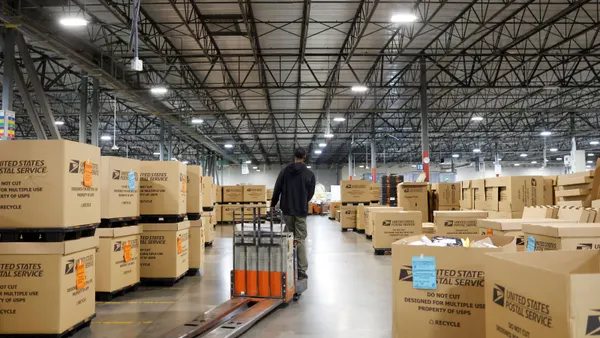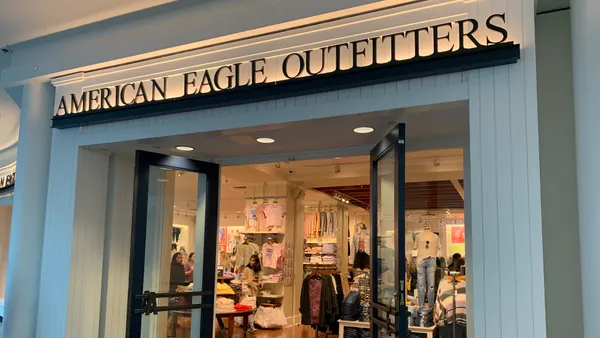Dive Brief:
- Temu won’t change prices for U.S. customers despite increased tariffs on imports from China and will transition to what it calls “a local fulfillment model,” the company said in an email to Fashion Dive on Friday.
- The fast fashion giant previously posted a notice on its website saying it would increase prices on April 25 in response to “global trade rules and tariffs.” That notice was still on Temu’s website as of press time.
- However, Temu is now saying that all of its U.S. sales are handled by locally based sellers, who will fulfill orders within the country.
Dive Insight:
Temu has been recruiting U.S. sellers to join its platform, per the spokesperson.
“The move is designed to help local merchants reach more customers and grow their businesses,” the spokesperson said. “This shift is part of Temu’s ongoing adjustments to improve service levels.”
President Donald Trump’s combined 145% tariff on imports from China would hit Temu hard because of Temu’s supply chain in the region. Temu would additionally face blowback from the proposal to end the de minimis exemption, a provision that generally exempts shipments into the U.S. worth less than $800 from additional customs review and duties. The Trump administration has already ended the exemption for shipments from China dna Hong Kong, effective Friday.
Temu and its fast fashion competitor Shein are known for their cheap prices and have benefited from this exemption.
Also last month, Shein said it would raise prices to account for the tariff impact. Despite being rivals with no affiliation, Shein and Temu’s customer notices were identical, with the exception of their respective brand names. At the time, neither company confirmed the extent of the cost increases.
A Shein spokesperson didn’t immediately respond to a request for comment.
While Temu has lost a significant revenue stream, it’s uncertain whether this will be temporary or long term, Martin Balaam, CEO and co-founder of AI firm Pimberly, said in emailed comments.
“Temu will likely face margin pressure as these suppliers attempt to unload this excess inventory outside of the U.S.,” Balaam said. “In addition Temu has gone hard on recruiting U.S. suppliers to adopt its platform for the U.S. market, which brings them head to head with the likes of Amazon & Walmart.”
Making changes will set Temu back, he added. However, Shein may not feel the impacts of the closing of the de minimis exemption as strongly, since Shein’s apparel products remain competitive from a pricing standpoint in the U.S.
“Shein’s more limited categories of products and perhaps better product data systems will have allowed it to continue shipping to the U.S. whereas the opposite may have been the case for Temu’s parcels which could be a huge reason why Temu decided to stop shipping Chinese imports to the U.S.,” Balaam said.













